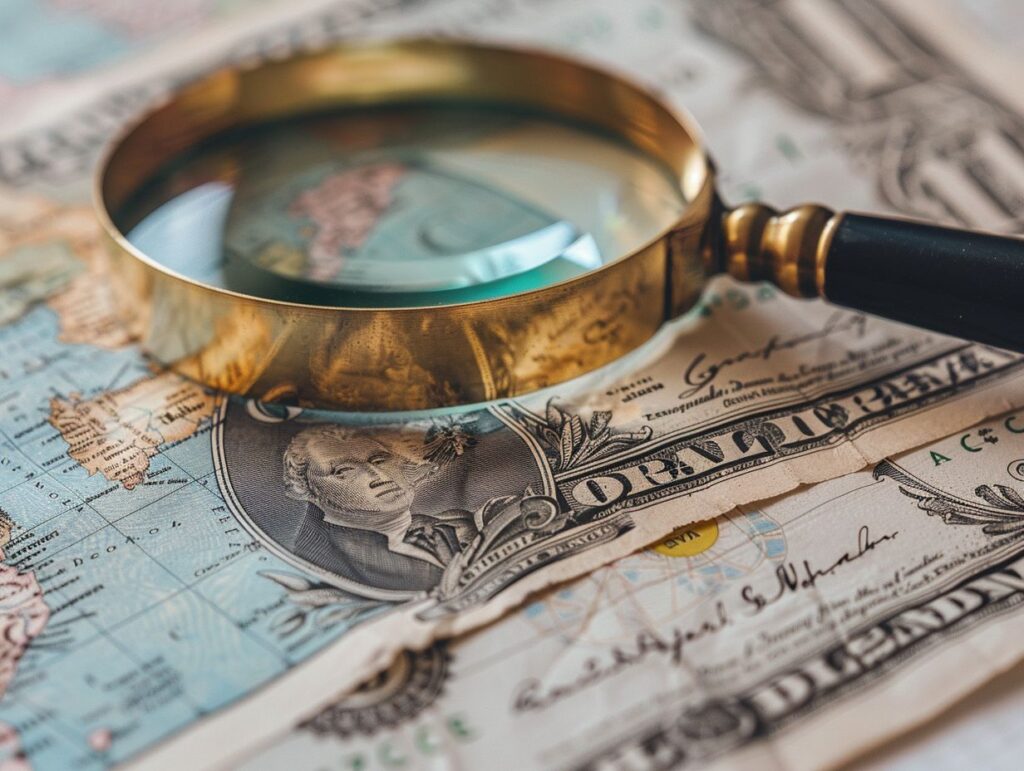Are you a musician looking to safeguard your creative work in Florida? From copyright registration to trademark protection, there are various ways to ensure your music is legally protected.
In this article, we will explore the different methods available to safeguard your music, including the steps to copyright your music in Florida. We will discuss the penalties for music copyright infringement in the state and provide tips on what to do if you suspect your music has been stolen.
Stay informed about music copyright laws in Florida and protect your intellectual property rights.
Key Takeaways:

- Registering your music with a performing rights organization like SoundExchange can protect your rights as a music creator and ensure you receive proper royalties.
- Filing a copyright application in Florida requires determining eligibility, paying fees, and submitting a copy of your music.
- Music copyright infringement in Florida can result in civil and criminal penalties, as well as statutory damages. Be vigilant and take action if your music has been stolen or copied.
Why is Protecting Your Music Important?
Protecting music is essential because it ensures that original work receives the legal protection it deserves, safeguarding intellectual property from unauthorized use and infringement.
Copyrighting music not only establishes ownership but also provides exclusive rights to reproduce, distribute, perform, and display compositions. Having a copyright in place allows control over how music is shared and utilized, thereby maintaining the integrity of artistic creations.
Without legal protection, there is a risk of others exploiting work without consent, potentially leading to financial losses and dilution of a brand. Conversely, copyrighting music can create opportunities for licensing, royalties, and collaborations, enabling talent monetization and industry reach expansion.
What are the Different Ways to Protect Your Music?
Various methods exist to safeguard your music, each offering varying degrees of legal protection and ensuring that your creative works are shielded from unauthorized use.
1. Copyright Registration
Copyright registration is a highly effective method for safeguarding your music, providing you with exclusive rights to your work and officially documenting it with the US Copyright Office. When you apply for copyright registration, the procedure involves submitting your work to the US Copyright Office, where it undergoes examination to ensure it meets the essential criteria for protection.
By registering your copyright, you acquire legal proof of ownership and the ability to take legal measures against anyone violating your rights. This not only discourages unauthorized use of your music but also enables you to pursue legal remedies in court if required. The US Copyright Office plays a critical role in managing this process and maintaining a registry of copyrighted works to enforce copyright legislation.
2. Trademark Registration
Trademark registration offers protection for music-related branding, including logos and names, adding an extra layer of legal security for intellectual property.
By obtaining a trademark for music-related elements, exclusive rights to use those identifiers in relation to products or services are secured, deterring others from capitalizing on your distinctive branding. This not only ensures the preservation of your identity in the market but also boosts the brand’s value.
A registered trademark provides legal recourse in the event of infringement, enabling legal action against unauthorized use of protected assets. This serves as a complement to copyright protection, providing a more all-encompassing safeguard for creative works.
3. Performing Rights Organizations
Performing Rights Organizations (PROs) assist in safeguarding your music by overseeing the collection of royalties whenever your compositions are publicly performed.
These organizations are essential for ensuring that songwriters, composers, and music publishers are fairly compensated for the usage of their works. PROs function by granting licenses to establishments like radio stations, restaurants, concert venues, and streaming platforms to commercially play music. Through monitoring performances and gathering data on music usage, PROs can distribute royalties to their members.
Some prominent PROs include ASCAP (American Society of Composers, Authors, and Publishers), BMI (Broadcast Music, Inc.), and SESAC (Society of European Stage Authors and Composers). These organizations offer a crucial service in the music industry, protecting the intellectual property rights of creators and fostering a sustainable environment for artistic expression.
4. SoundExchange
SoundExchange is an organization that gathers and distributes digital performance royalties for sound recordings, providing necessary protection and financial benefits for artists.
By collaborating closely with digital music services and platforms, SoundExchange guarantees that artists and rights holders receive fair compensation for their work when their music is streamed online.
In contrast to Performing Rights Organizations (PROs), which manage royalties for songwriters and publishers, SoundExchange concentrates on managing royalties for the master recording owners and performing artists. This distinction is vital to ensure that all parties involved in the creation of music receive appropriate compensation.
Registering with SoundExchange is crucial for artists to receive royalties from digital performances, giving them a direct path to access the income generated by their music in the digital domain.
5. Creative Commons Licenses
Creative Commons licenses provide flexible ways for musicians to protect their works while allowing certain uses by others, striking a balance between protection and public domain access.
These licenses are available in various types, each specifying the extent of freedom granted to users. For example, the Attribution license only requires credit to the original creator, while the ShareAlike license ensures that adaptations are shared under the same terms. The Non-Commercial license limits commercial use, and the No Derivatives license prohibits alterations to the original work.
By selecting the appropriate license, creators can determine how their works can be shared, reused, and built upon, encouraging collaboration and creativity in the digital age.
What are the Steps to Copyright Your Music in Florida?
To copyright music in Florida, individuals must follow a series of steps that involve determining eligibility, filing an application, and registering the work with the US Copyright Office.
1. Determine Eligibility for Copyright Protection
The initial step in copyrighting music involves determining if the work qualifies for copyright protection, ensuring it aligns with the requirement of being an original work of authorship.
For a work to be considered original, it must be independently created and exhibit a minimal level of creativity. This implies it should not be a direct replication of someone else’s work and should demonstrate the creator’s unique expression.
Confirming the eligibility of the work is essential before proceeding with the registration process to guarantee it meets the legal criteria for copyright protection. By verifying the originality of the music, the creator can safeguard their rights and protect the work from unauthorized use or reproduction by others.
2. File a Copyright Application
Once the eligibility of the work has been determined, the next step involves filing a copyright application with the US Copyright Office to officially register the music.
This process entails completing the appropriate forms, such as Form CO for online submissions or Form PA for performing arts works, and providing detailed information about the music being registered.
Alongside the form, a copy of the music itself must be submitted, whether in written or recorded form. The accuracy and completeness of the information provided are crucial to ensure efficient processing of the copyright application.
Submission methods can vary and may include online submissions through the Copyright Office’s electronic system or physical submissions via mail.
3. Pay the Required Fees
The registration process requires payment of fees to the US Copyright Office, with costs varying based on the type of work and chosen registration method.
Different fee structures exist for different work types, such as literary, visual arts, or performing arts. The fees typically range from $45 to $65 for online registration.
Understanding the accepted payment methods is crucial; the Copyright Office allows payments through credit cards, debit cards, electronic funds transfer, and copyright office deposit accounts. Timely payment is important to avoid registration delays, as any delays could impact the protection of intellectual property rights and eligibility for statutory damages in case of infringement.
4. Submit a Copy of Your Music
After completing the application and paying the fees, a copy of the music needs to be submitted to the US Copyright Office as part of the registration process.
The US Copyright Office accepts music submissions in various formats such as CD, MP3, or WAV files. Along with the music, a completed registration form, information about the music, and the appropriate filing fee must also be included.
It is crucial to carefully follow the submission requirements to avoid delays in the registration process. Providing accurate and complete information will help protect the music and ensure that it receives the necessary copyright protection.
5. Wait for Your Copyright Certificate
After completing your application and submission, the final step involves waiting for your copyright certificate from the US Copyright Office to confirm the registration of your music.
During this waiting period, which typically ranges from several weeks to a few months, it is important to be patient as the office processes your application. While waiting, you can expect to receive a physical or digital copy of your copyright certificate, which serves as tangible proof of your registered work.
This certificate is valuable as it establishes your ownership rights and provides legal protection in case of any copyright infringement issues. Remember to store this document in a secure location as it validates your creative ownership and safeguards your intellectual property rights.
What are the Penalties for Music Copyright Infringement in Florida?
Music copyright infringement in Florida can lead to serious penalties, which may include civil and criminal consequences. This is done to safeguard the rights of copyright holders and discourage the unauthorized use of their works.
1. Civil Penalties
Civil penalties for music copyright infringement in Florida may include monetary damages awarded to the copyright holder for losses incurred due to the unauthorized use of their work.
These damages can be calculated based on various factors such as the extent of the infringement, the profits gained by the infringer, and any actual financial losses suffered by the copyright holder. There are two main types of civil penalties for copyright infringement: actual damages and statutory damages.
Actual damages refer to the specific amount of money the copyright holder has lost due to the infringement, while statutory damages are set amounts determined by the court. Pursuing civil claims for copyright infringement typically involves initiating a lawsuit in the appropriate court, providing evidence of the infringement, and allowing the court to assess the damages.
Courts play a crucial role in determining the penalties by evaluating the evidence presented and applying relevant laws to ensure fair compensation for the copyright holder.
2. Criminal Penalties
Along with civil penalties, music copyright infringement in Florida can lead to criminal penalties, including fines and imprisonment, as a deterrent against illegal activities.
When criminal penalties are applied in cases of copyright infringement, the severity of the penalty often depends on various factors such as the nature and extent of the violation, the intention behind the infringement, and the defendant’s criminal history.
The potential legal consequences of criminal copyright infringement can range from hefty fines to significant jail time. Prosecuting criminal copyright infringement involves gathering evidence, presenting the case in court, and seeking a conviction beyond a reasonable doubt. The legal process in such cases can be complex and requires skilled legal representation for both prosecution and defense.
3. Statutory Damages
Statutory damages offer a predetermined range of monetary compensation for music copyright infringement, providing a legal remedy for copyright holders without the necessity of proving actual losses.
These damages are established by the law and function as a deterrent against potential infringers. The range of statutory damages can vary significantly based on the jurisdiction and the type of infringement.
For instance, in the United States, statutory damages for copyright infringement can vary from $750 to $30,000 per work infringed, and up to $150,000 if the infringement is determined to be willful. This framework presents a methodical approach to guaranteeing that copyright holders receive fair compensation for the infringement of their work, even if quantifying the actual financial harm proves challenging.
What Should You Do if You Suspect Your Music Has Been Stolen or Copied?
If there is a suspicion that music has been stolen or copied, it is recommended to promptly consult a Miami entertainment lawyer to consider legal options for safeguarding rights and pursuing infringement claims.
The initial step involves collecting evidence to substantiate the claim, such as original recordings, copyright registrations, and any relevant communication indicating theft or copying. Subsequently, the lawyer can assist in creating a cease and desist letter to be sent to the infringing party, demanding the cessation of music usage.
If there is escalation, the lawyer can provide guidance on the process of initiating a lawsuit for copyright infringement, seeking damages, and potentially securing an injunction to prevent further unauthorized use of the music.
How Can You Stay Informed About Music Copyright Laws in Florida?
Being informed about music copyright laws in Florida is crucial for safeguarding creative works and ensuring adherence to the latest legal requirements and updates.
A valuable method for staying current on copyright laws is by utilizing legal publications, such as journals and newsletters specializing in intellectual property law. These resources often offer detailed insights into recent court cases and legislative revisions that may impact musicians and creators.
Another effective approach is to become a member of professional organizations like the Music Business Association or the American Intellectual Property Law Association, which provide access to seminars, workshops, and networking opportunities related to copyright law.
Seeking guidance from experienced entertainment lawyers who possess a thorough understanding of copyright regulations can offer personalized advice and assistance tailored to individual legal needs.
Frequently Asked Questions
What is the first step to protecting my music in Florida?
The first step is to officially register your music with the United States Copyright Office. This will give you legal ownership and protection of your original work.
Do I need to renew my copyright protection in Florida?
No, once your music is registered with the Copyright Office, it is protected for the duration of your life plus 70 years after your death. There is no need to renew the protection in Florida.
Can I protect my music in Florida without registering with the Copyright Office?
While it is not required, registering with the Copyright Office provides the strongest legal protection for your music in Florida. It also makes it easier to prove ownership in case of any disputes.
What other steps can I take to protect my music in Florida?
You can also use a watermark or digital signature on your music to discourage unauthorized use. Additionally, you can include a copyright notice on all of your music, stating the year of creation and your name.
Can I protect my music in Florida if I am not a US citizen?
Yes, as long as your music is registered with the Copyright Office in the US, it is protected in Florida regardless of your citizenship.
What should I do if someone uses my music without my permission in Florida?
If you have registered your music with the Copyright Office, you can file a lawsuit against the infringer for copyright infringement. It is recommended to consult with a legal professional for further guidance in this situation.


























Rate this article:
Average rating 0 / 5. Vote count: 0
No votes so far! Be the first to rate this post.
No Comments yet!